Who Is Ebrahim Raisi?
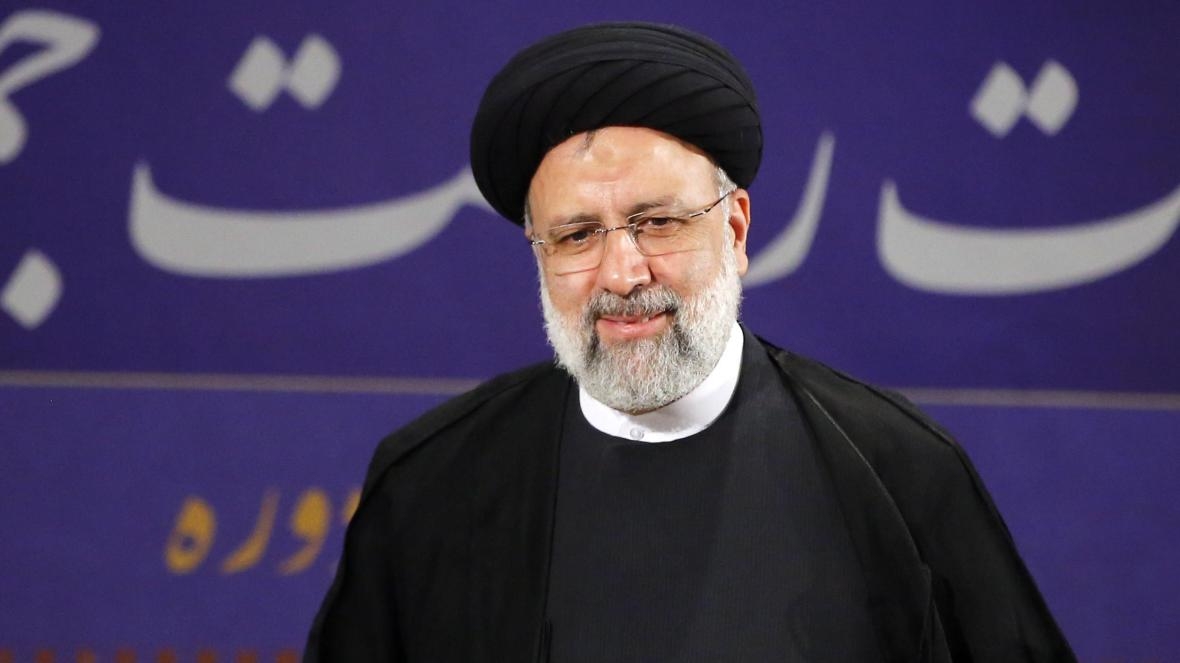 |
| Photo: thetimes |
After several weeks of waiting, Iran's supreme leader, Ali Khamenei, named Ebrahim Raisi as the head of the judiciary on March 7, 2019. Raisi is a cleric who is considered a criminal due to his involvement in the 1988 massacre of 30,000 political prisoners, which was the largest genocide and massacre to occur after World War II.
He served as the Assembly of Experts' member, the Astan-e-Quds-e-Razavi charity foundation's custodian, and the Special Attorney General for Clergy prior to entering the judiciary. Raisi received a nomination in the 2017 presidential election as Khamenei's preferred choice. However, he faced significant challenges in his quest for power due to the ongoing disclosures by the Iranian Resistance and PMOI/MEK regarding his involvement in the murder and massacre of 30,000 political prisoners.
Ebrahim Raisi Background
Ebrahim Raisi, also known as Mullah "Ebrahim Rais-al-Sadati," was born in the Noghan neighborhood of Mashhad, in the province of Khorasan Razavi, in 1959. Following his completion of elementary school, he attended the seminary in Mashhad. His non-seminary education actually ends at the sixth grade. At fifteen, he was transferred from the seminary in Mashhad to the seminary in Qom.
In 1979, Raisi was eighteen years old when the anti-monarchy revolution occurred. Raisi traveled to Masjed-e-Soleiman in the early days of the regime's establishment at the invitation of Hadi Marvi, Ruhollah Khomeini's envoy in Masjed-e-Soleiman, where he established his first contact with the clerical court.
When Raisi returned from the crackdown on Masjed Soleiman a year later, he was only 19 years old and assigned to the Karaj Prosecutor's Office as a judge. Basically, his job there was to question prisoners. Ebrahim Raisi was named Karaj Prosecutor at the age of 20 by Ali Qoddusi, the criminal cleric who was then Revolutionary Prosecutor. A few months later, having committed numerous crimes in Karaj, Ebrahim Raisi was named the Prosecutor of Hamedan, all the while keeping his job in Karaj.
Serving as the Hamedan Prosecutor until 1984, Raisi persisted in suppressing the populace. Ebrahim Raisi was named deputy head of the Central Revolutionary Prosecutor's Office by Mullah Ali Razini in 1984, the year he took over as the office's leader.
Three deputies made up the Central Prosecutor's Office at the time: one for economic matters, one for drug trafficking, and one for so-called "grouplets." At the age of 24, Raisi was appointed deputy for grouplets. Raisi actively took part in all of the regime's atrocities while serving as the deputy in the Revolutionary Court Prosecutor's Office at the time. Specifically, he participated actively in the 1988 massacre as a member of the Tehran "Death Commission."
Death Committee
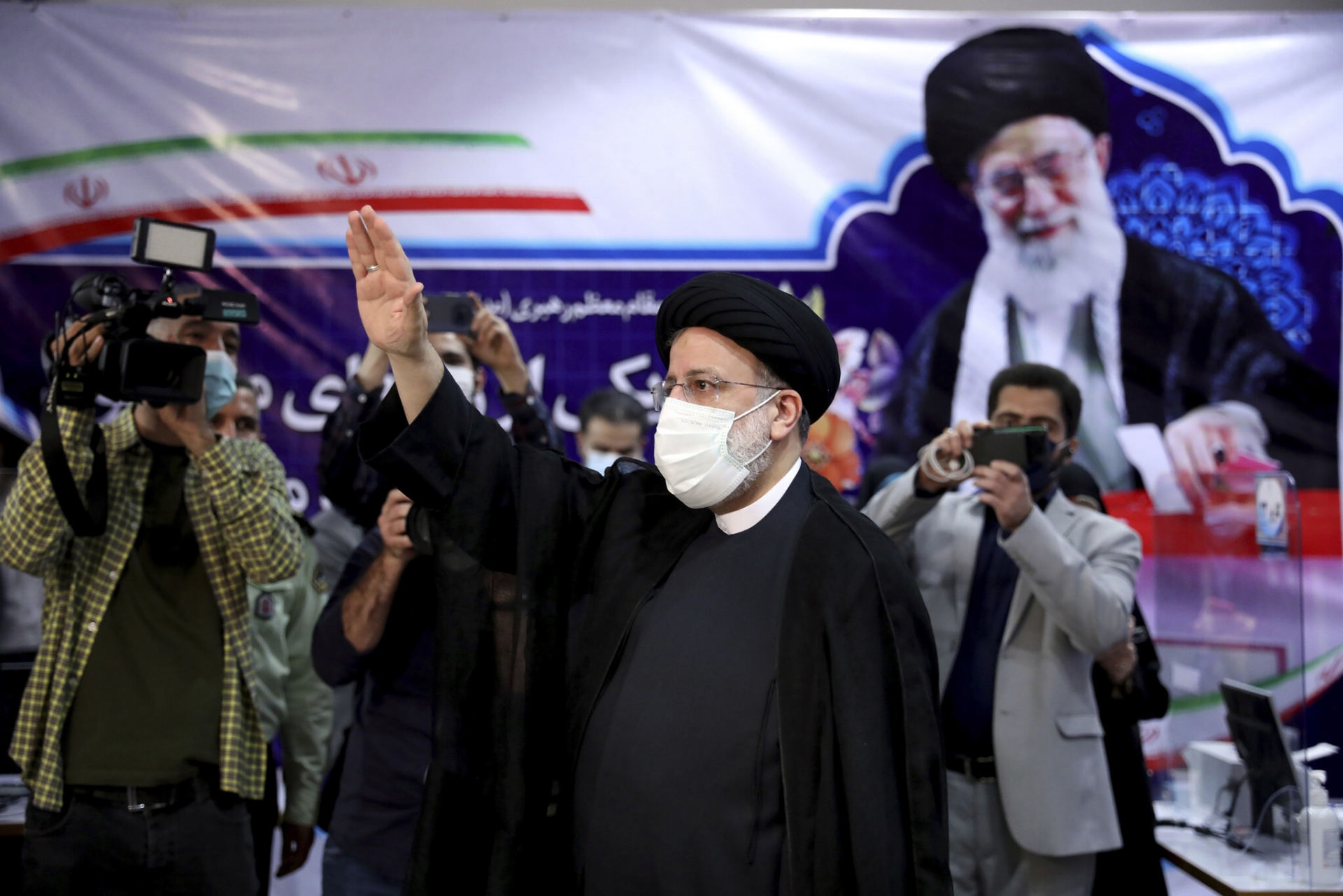 |
| Photo: timesofisrael |
More than 30,000 political prisoners were put to death in Tehran's Evin prisons, Gohardasht's prison in Karaj, and other prisons throughout Iran during the summer of 1988 at Khomeini's orders. The primary decision-makers for these executions, known as the Delegation of Death, were Ebrahim Raisi, the Attorney General of Tehran at the time, Hossein Ali Nayeri, the judge of Shari'a, Morteza Eshraqi, the Tehran prosecutor, Mostafa Pourmohammadi, the deputy Minister of Information, and Ismail Shooshtari, the head of the Department of Prisons. Khomeini sent the delegation with the mission of elucidating the circumstances surrounding those political prisoners who remained steadfast in their opposition to the clerical dictatorship and in favor of PMOI/MEK.
Khomeini's own officials became divided and engaged in disputes as a result of this crime against humanity and genocide due to the speed and volume of executions. Hossein Ali Montazeri, Khomeini's successor at the time, was the most prominent example. Montazeri disagreed with Khomeini's strategy for handling the PMOI/MEK. Montazeri thought that other measures should be taken to suppress the PMOI instead of carrying out executions as a means of dealing with their actions. According to Montazeri, the PMOI is an ideology that permeates society and won't go away with executions.
The meeting between his father and the "Delegation of Death" on August 15, 1988 was made public on August 9, 2016, by Ahmed Montazeri, the eldest son of Hossein Ali Montazeri, on his website. Hossein Ali Montazeri addresses the "Death Committee," criticizing the practice and declaring, "We will be condemned by the history and our name will be recorded as criminals."
Montazeri states in the audio file: "I called Mr. Nayeri, Mr. Ishraqi, Mr. Raisi, and Mr. Pourmohammadi and informed them that it was now Muharram. It was the first day of Muharram." At the very least, limit the number of executions in Muharram. Mr. Nayeri responded, saying, "We have executed up to 750 people in Tehran and separated 200 more from the rest; once we get rid of those, we will follow your advice."
Raisi, who was enlisted in the regime's killing apparatus at the age of 18, thereby assumed a prominent role in the "Delegation of Death," the most significant act of violence carried out by the religious fascism that has ruled Iran since 1979. According to some of the people who survived those executions, Akhund Raisi was spotted supervising executions while strolling through the prison's hallways and torture chambers without his turban and religious garments.
After demonstrating his brutality during the 1988 massacre, Raisi gained Khomeini's confidence and was regularly respected by him.
On January 30, 1989, Ebrahim Raisi, the official deputy of Tehran's Revolutionary Court, was elevated to a two-member delegation by Khomeini, who also included Hossein Ali Nayeri, another member of the infamous Death Committee, in light of Raisi's cruelty and devotion. These two were tasked with imposing death sentences and amputating hands and feet in order to establish a state of suppression and repression "free of administrative obligations."
Khomeini was not pleased with the judiciary's savagery and cruelty, which had recently stopped killing political prisoners. Two weeks after the above verdict was rendered, he appointed Raisi and Nayeri to expedite his medieval laws, while expressing surprise at the inaction of the judicial authorities.
"In the compassionate and forgiving name of God. According to the aforementioned cases, Hojatoleslam Nayeri and Raisi have been appointed to take the necessary actions in the framework of dear Islam because the country's high judicial authorities are insensitive to the shocking issues that are currently in the news. It is unexpected that such things happen in the Islamic system, but other legal matters are more important and God's commands are not carried out kindly.
Following Khomeini's letter to Raisi and Nayeri, Mousavi Ardebili, the head of the regime's Supreme Judicial Council, felt that his position was in jeopardy. Khomeini had stated in that letter that "the country's high judicial authorities have no sensitivity." In an attempt to maintain his standing, Ardebili hurried to Tehran for the Friday prayer and declared:
"The court system's burden made it impossible to impose sentences, and [Khomeini] was recently told that this work would take longer than expected because of these issues. After giving the matter some thought, he wrote to us stating that God's commands should be followed without delay. After the Imam said this and we felt we had his permission, the following was carried out in a day: Three were booked into jail, two had their hands cut, and two had been put to death. Calls to the tracking office can provide information about the issues, and the office is open all day. Just inform us of the incident, and we will use Imam's administration to swiftly set up the courts. Within three, four, or five days, we'll have this resolved." (Friday prayer, January 19, 1989, Mousavi Ardebili)
A day following Akhund Mousavi Ardebili's speech in which he declared his public stance, Khomeini issued a new decree extending the authority of Raisi and Nayeri to execute death sentences, whippings, amputations of the hands and feet, and other cruelties as quickly as possible.
Only after obscuring a violent past did Raisi win Khamenei's trust and special attention: Special Prosecutor of the Clergy, Chairman of the Supervisory Council for Television and Radio (Seda va Sima), Chief of the State Inspectorate, First Deputy Chief of the Judiciary, Interrogator at the Masjed Soleyman Prosecutor's Office, Prosecutor-General of Karaj, Prosecutor of Karaj, Prosecutor of Hamedan, Prosecutor of Tehran, and Prosecutor of Tehran following the summer 1988 massacre.
Raisi was the first deputy of the judiciary and a key figure in the crackdown on demonstrators during the 2009 nationwide uprisings. In one case, the regime was compelled to react to events when public opinion was against the Kahrizak detention center, a location where arrested youth were being tortured physically and psychologically during the uprising. Along with two other individuals, Raisi was chosen by the head of the judiciary to investigate the problem of sexual harassment in prison. On September 12, 2009, the three denied that there were eyewitnesses to the detainees' mistreatment. It was easy to predict what would happen when Raisi, one of the masterminds behind the massacre of 30,000 political prisoners, was tasked with looking into prison torture. According to Ebrahim Raisi, the Kahrizak issue is "marginal" and the main takeaway is that the Islamic system is being greatly oppressed.
By order of Ali Khamenei, Raisi, the nation's Attorney General, was named the leader of Astan-e-Quds of Razavi on February 26, 2019. One of Iran's biggest economic empires, Astan-e-Quds controls a sizable portion of the country's capital and businesses in the northeast. Astan-e-Quds only answers to the supreme leader and provides funding to the Revolutionary Guards.
Raisi declared himself to be the best choice for Ali Khamenei's group on April 14, 2017, during the regime's presidential elections. Following the announcement of his candidacy, the deliberate disclosures by the Iranian Resistance brought the 1988 massacre back into the public eye and reignited animosity towards Raisi. As a result, Raisi became the target of derogatory and hateful slogans in the community, such as "killer of '88." Due to this, he encountered numerous challenges during his campaign and ultimately lost on May 19, 2017.
On March 7, 2019, Khamenei named Raisi as the leader of the judiciary after he lost the presidential election and plundered Iranian citizens' belongings in Astan-e-Quds. Thus, he has been placed in a position with greater freedom to suppress and plunder, even though his life has been one of slaughter and cutting hands, which he refers to as his honor.
Following Raisi's appointment to head the judiciary, the Iranian people set fire to his portrait along with that of Khamenei and Khomeini.
Key Positions of Power
Similar to the supreme leader, Raisi hails from northeastern Iran's holy city of Mashhad. It was no accident that he was chosen by Khamenei to lead the influential religious organization Astan Quds Razavi in 2016. Located in the same city of Mashhad, the foundation oversees the shrine of Imam Reza, who the Duodecimal Shiites believe to be the Prophet's eighth successor.
The Astan Quds Razavi organization manages the billions of euros in donations made to this important Shiite pilgrimage site. The foundation, which serves as a holding company and a charity, owns a wide range of real estate assets, farmland, and companies in industries including food, tourism, construction, and agriculture. In charge of this foundation is equivalent to managing an empire. After working in this capacity for three years, Khamenei called Raisi to consider a different position.
He was named chief of the Iranian Judicial Authority in March 2019. Raisi was given the responsibility of vigorously combating "corruption" by Khamenei, making this another significant appointment.
Since taking office, Raisi, Khamenei's faithful soldier, has increased the number of widely reported corruption trials. He has recently begun to target judges as well as state dignitaries.
Through these trials, he has been able to remove some powerful political rivals, including Sadeq Larijani, his former chief justice who had a close adviser who was implicated in one of these corruption scandals. In addition, Larijani is the brother of Ali Larijani, whose own presidential bid was disallowed by the Guardian Council—likely due to this familial conflict.
The battle against corruption is one of Raisi's main campaign themes. He declared that, should he be elected, he would fight "against poverty" and positioned himself as "the opponent of corruption, inefficiency, and aristocracy" in a statement.
Presidential Race
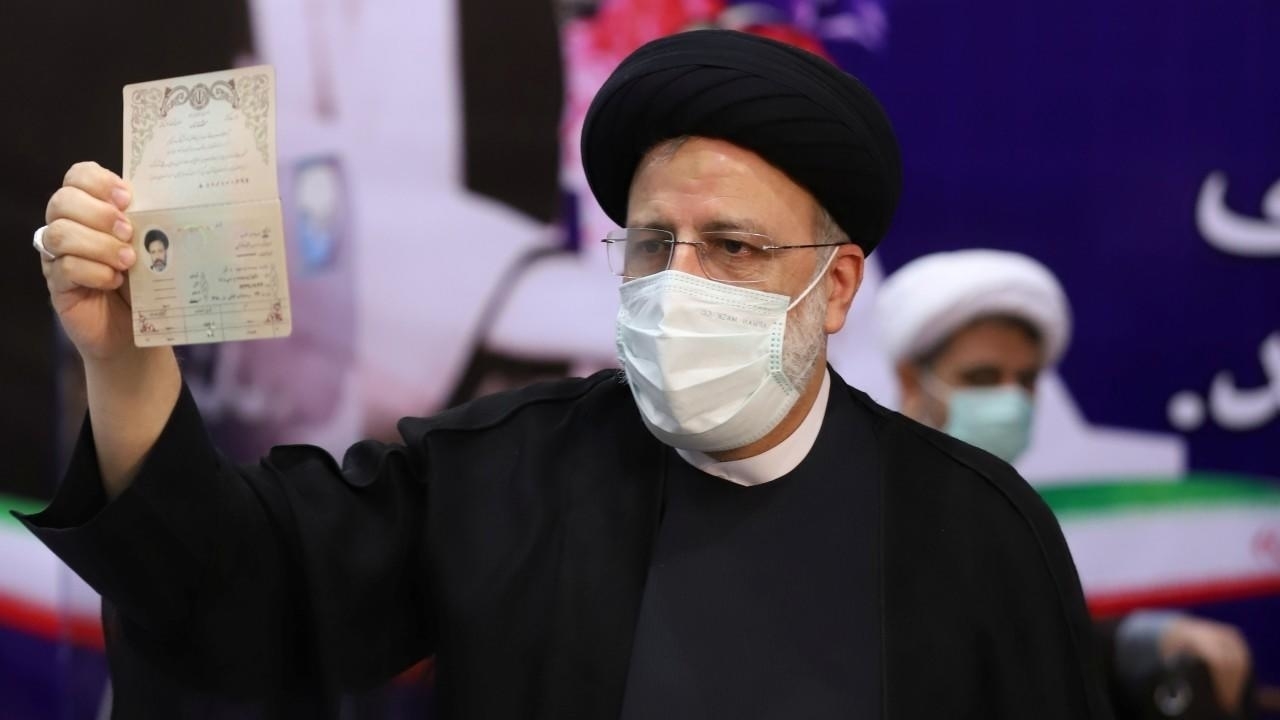 |
| Photo: france24 |
On April 6, 2017, Raisi declared that he was running for president because it was his "religious and revolutionary responsibility." He declared himself open to the idea of a "fundamental change in the country's executive management." He lacks both charisma and speaking ability, and his performance in the first televised presidential debate was deemed flat and uninteresting. Raisi was the primary conservative contender, but Tehran's conservative mayor and backup Principlist, Mohammad Bagher Ghalibaf, outperformed him.
Ghalibaf withdrew his candidacy in favor of Raisi a week prior to the election. However, Raisi, who was thought to be Khamenei's top pick, had little chance of defeating Hassan Rouhani, the incumbent, who had the backing of well-known reformists like Mohammad Khatami. Historically, social groups have been successfully mobilized around elections by the moderates and reformists. This time, Rouhani's supporters included all the major figures in the reformist camp.
Rouhani campaigned on a platform of expanding political possibilities and implementing a sensible foreign policy. Raisi's main areas of interest were pro-poor economic policies. His beliefs and ideologies were similar to those of the supreme leader in many respects, including social conservatism, anti-Western sentiment, and a "revolutionary" approach to the foreign and economic policies.
There were rumors going around before the election regarding the Islamic Revolutionary Guard Corps (IRGC) and their endorsement of Raisi. The IRGC's role in helping Mahmoud Ahmadinejad win reelection in 2009 sparked fears of vote-rigging among Rouhani's supporters. However, the election was deemed to be peaceful, transparent, and fair in spite of growing tensions.
The opponent of Raisi won with a resounding 23,549,616 (38.3%) of the 42,382,390 votes cast. Votes for Raisi totaled 15,786,449. In response, he demanded that the Guardian Council look into "violations of the law" that occurred both before and during the election, implying that anomalies had benefited his opponent. He declined to congratulate Rouhani on his victory as well.
Chief Justice
The supreme leader of Iran started making important personnel choices that would impact Raisi's future in December 2018. Sadegh Larijani, the chief justice at the time, was elevated by Khamenei to take over as the former chairman of Iran's Expediency Council following the death of Mahmoud Hashemi Shahroudi. One body that settles disputes between the parliament and the Guardian Council is the Expediency Council. In August 2019, Larijani was approaching the end of his tenure as head of the judiciary, having held the influential post for nearly ten years. However, Larijani wouldn't hold both jobs for very long. The supreme leader of Iran named Raisi as Chief Justice Larijani's replacement in March 2019. The fact that this action was taken months before Larijani's term was set to expire raised suspicions. As if that promotion weren't enough, Raisi defeated Larijani to take the position of deputy chairman of the Assembly of Experts a few days later.
As Khamenei ages, Raisi has thus placed himself in a strong position in the struggle for succession. He holds a leadership position in the body that officially has the power to choose Iran's next supreme leader, and he commands one branch of government. Larijani was formerly regarded as a strong candidate to succeed him as supreme leader, but Raisi has steadily damaged his reputation by filing an anti-corruption lawsuit against his former deputy, Akbar Tabari. In fact, Larijani claimed the disclosures—the trial has been aired on state television—were a part of a "pre-planned scenario" meant to damage his reputation. Raisi also took credit for the dismissal of at least sixty judges from the Larijani administration. Raisi has also employed anti-corruption as a political tool against the Rouhani government, focusing on the president's brother, the son-in-law of his labor minister, the former vice president for women and family affairs, the daughter of his former industry minister, and others under the supervision of the new chief justice.
Raisi has simultaneously made an effort to gain favor with more pragmatic Iranian power centers by enacting stronger financial transparency regulations for top officials and launching an inquiry into "possible negligence" in connection with the death of a social media activist incarcerated. Not to mention the court's July 2020 decision to order a retrial following outrage over the death sentences of three protesters detained following the unrest surrounding the new gas policy in November 2019, or the temporary release of prisoners in the midst of the coronavirus outbreak.
Raisi now has additional benefits from his position as chief justice, since he is a member of both the Supreme Economic Coordination Council (SECC) and the Supreme National Security Council (SNSC). Since Raisi had never held either position before 2019, both positions improve his resume. He has gained firsthand experience in crafting national security policies through the SNSC, and the SECC has developed into a significant political force that occasionally gets around Iran's legislature. Additionally, he has courted members of the larger Axis of Resistance. In April 2020, for instance, he called Ismail Haniyeh, the leader of Hamas' political bureau. In the wake of the January 2020 strike that killed Qassem Soleimani, the former commander of the IRGC-Quds Force, Raisi took the lead in organizing Iran's legal response. Raisi was also photographed alongside Khamenei during the late commander's funeral. The visuals conveyed a lot.
In summary
Ebrahim Raisi's career has progressed due to his consistent advancement by Iran's top leader, his powerful family, and his astute management of his reputation and visibility. With an emphasis on populism and anti-corruption, Raisi has built a strong political brand. Given that he meets several requirements, including having connections to military security forces, Raisi is a significant figure to keep an eye on as a potential Supreme Leader. However, it is important to reiterate that the Supreme Leader has not chosen his successor.
Raisi has now declared his candidacy for the June 2021 presidential election once more. He is the first sitting chief justice to run as a result. However, he runs the risk of losing a second time, which could harm his chances of succeeding Khamenei. Even though the government has stacked the deck in his favor, becoming president could prove to be a hollow victory. Because of the prolonged economic stagnation, stepped-up crackdowns on protests, and the government's opaque and incompetent response to the COVID-19 pandemic, dissatisfaction with the regime is at an all-time high. Many Iranians have lost hope that Iran's republican elements will take up their grievances, and as a result, many plan to boycott the election.
If Raisi is elected president, he will undoubtedly try to spread his brand of populism and anti-corruption views. He takes over enormous economic challenges that have been made worse by structural flaws and poor management for decades. Although the president lacks the constitutional authority to significantly change Iran's public policy direction, he frequently has more discretion over economic matters and is therefore held more accountable. The Supreme Leader ultimately determines the course of the Islamic Republic's fundamental foreign policy, which is likely to continue.
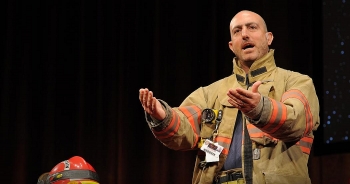 Who Is Mark Bezos: Biography, Personal Life, Career and Net Worth Who Is Mark Bezos: Biography, Personal Life, Career and Net Worth MARK Bezos is the brother of the world's richest man, Amazon founder Jeff Bezos. Read on to know more about his biography, personal profile, career ... |
 Who Is Rhea Chakraborty: Biography, Career, Personal Life and More Who Is Rhea Chakraborty: Biography, Career, Personal Life and More Bollywood actor Rhea Chakraborty has topped the list of The Times 50 Most Desirable Women 2020. To know more about her, keep reading the article ... |
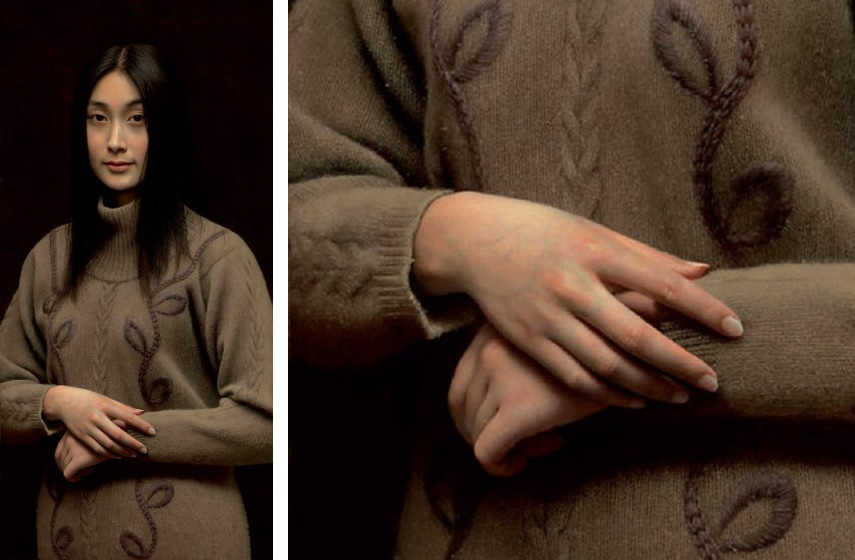 Who Is Leng Jun: Facts about 'Most Realistic Paintings'. Biography, Career, Personal Life and Who Is Leng Jun: Facts about 'Most Realistic Paintings'. Biography, Career, Personal Life and Creating portraits that are startlingly lifelike, Chinese artist Leng Jun is a master of hyperrealism. The accomplished painter is particularly known for his detailed oil ... |























